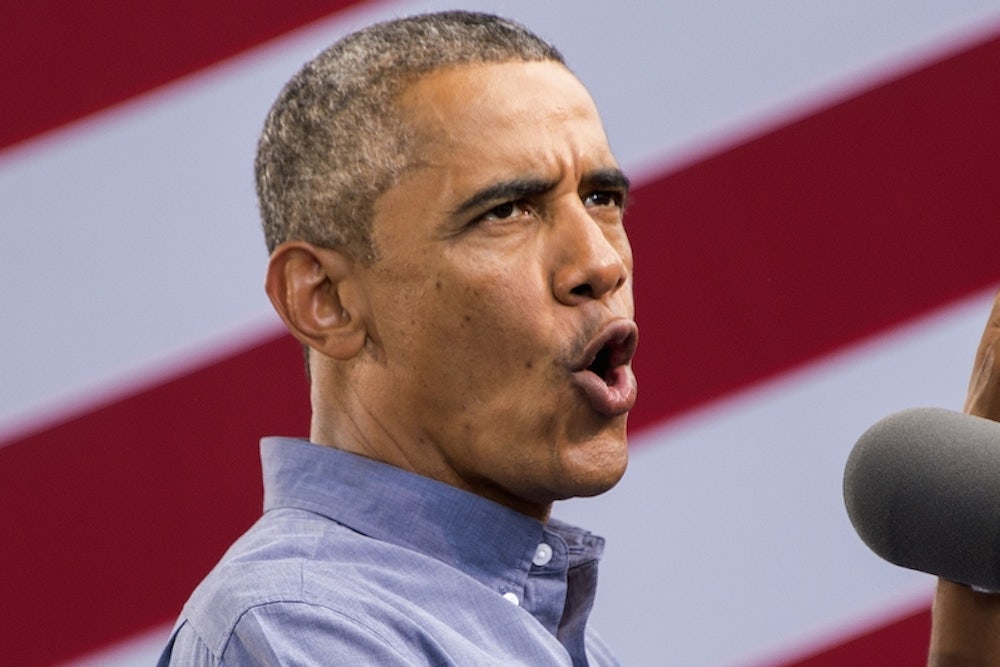If the trial balloons the White House floated late last week reflect President Obama’s true thinking, then Senate Democrats have frightened him out of his pledge to curb deportations of unauthorized immigrants with deep roots in the United States this month.
Several weeks ago, Obama announced he would adopt end-of-summer recommendations from Attorney General Eric Holder and Department of Homeland Security Secretary Jeh Johnson “without delay.” Now he says that largely extraneous issues, like the child-migrant crisis at the border, “do affect timelines.”
Which is a tellingly oblique way of saying he might defer implementation until after the November election.
The political reasoning sounds incredibly straightforward. Most of the Senate Democrats running in tightly contested elections represent conservative states with low immigrant populations and deep hostility to “amnesty.” So why introduce more uncertainty into those campaigns, and potentially ignite a fire under the GOP base, when you could just as easily wait six weeks?
But it also seems suspiciously simple to me. That’s in part because I don’t entirely understand how much cover you buy for vulnerable Democrats if you put off the official announcement, but tell the press that the dreaded amnesty is coming just a few weeks later.
It’s more than that, though. Obviously, Democrats running in states like Arkansas and North Carolina don’t want to inject a new and divisive issue into their campaigns. They’ve said as much. But the truth is, nobody really knows how the politics of a big new deferred-action program will shake out, because it’ll be a novel program. Our best heuristic is to watch how people with a political stake in Obama’s decision react when asked about it, and draw inferences.
And the truth is that Republicans sound much more spooked than Democrats.
Senate Democrats like Mark Pryor of Arkansas and Kay Hagan of North Carolina run to Obama’s right on this, in fairly generic terms. Running to his right kinda comes with the territory.
Republicans, by contrast, have been all over the place. Some of them have griped to reporters (anonymously, of course) that a big new deportation relief program would foment a rebellion, leaving House Speaker John Boehner a losing choice between teaming up with Democrats to fund the government on Democratic terms and letting his hardliners shut down the government again.
Others prefer the strategically wiser, but less forthright approach of trying to scare Obama and Democrats out of acting in September using political psyops.
“I think if he makes this decision before the elections—it’s him conceding control of the Senate,” Senator Marco Rubio told the conservative website Breitbart last week. “If you take an executive decision of this magnitude, politically it will be disastrous for Democrats in a number of key states around the country.”
Still others have devoted their efforts to drowning out anti-immigration hardliners, who would love to use their influence to provoke a shutdown fight over immigration if Obama were to act in the next couple weeks.
“There is one person and one person only talking about shutting down the government, and that is the White House,” Senator Ted Cruz said this weekend, banking on the hope, I guess, that reporters hadn’t read Rep. Steve King’s comments in the Des Moines Register, and didn’t recall Cruz’s own year-old shutdown campaign, which relied heavily on pretending that he wasn’t trying to shut down the government at all.
If Republicans genuinely believed that Obama would regret announcing deportation relief in September rather than in December or January, they wouldn’t tell him. Why interrupt an opponent when he’s making an error?
Which is why I think the political drawbacks of immediate action are overstated. The best political argument I can think of for waiting until after the midterms is that it’d place immigration and deportation right back at the center of the national policy debate just as the political media turns its exclusive attention to the 2016 election and the GOP primary. But Republican presidential hopefuls are making disqualifying statements about immigration right now, all on their own, and will continue to do so whether Obama acts in the fall or in the winter.
Add it all up, and the case for letting politics dictate timing is pretty thin.
